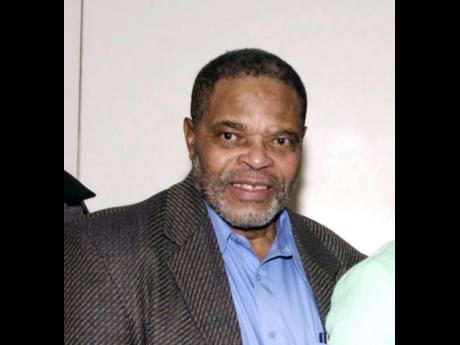Kingsley Gilliam | Easing Bellevue's glut
The situation addressed by the auditor general is indeed a very serious problem for Bellevue Hospital, because it deprives the hospital of 673 active treatment beds, or 85 per cent of them of its active treatment capacity. What that means is that approximately 85 per cent of people needing psychiatric hospitalisation have to be turned away because the beds are taken up with patients who occupy them for social reasons.
I was trained at Bellevue Hospital in the 1960s, when that facility had 3,000 beds. This was prior to the decentralisation of psychiatric care in Jamaica from one treatment facility at Bellevue Hospital to psychiatric units in the major regional hospitals. Having been a member of the PAHO Demonstration Unit Team at K Ward, which trained staff for deployment to establish treatment units in the regional hospitals, I fully understand the scope of the problem.
Through my work in mental health in Canada, I studied and experienced the devolution of psychiatric care from major state-run hospitals in the US and provincial institutions in Canada, to community-based care in the USA and Canada. We have seen the long-stay patients discharged from back wards and end up on the back streets of major cities because the funding for community-based housing and clinical services, on which the devolution model was based, were never provided.
Furthermore, while in graduate school at the University of Alberta in the early 1980s, I worked as an outreach social worker with the Canadian Mental Health Association in Edmonton, Alberta. That agency provided a limited portfolio of rehabilitative housing for psychiatric cases, but there was a very short supply of such housing and patients ready for discharge, had few social housing options; so they kept occupying hospital beds in provincial hospitals at a cost of $150 per day, and some major hospitals like University of Alberta Hospital and Calgary Foot Hills Hospital had an operating cost of $1,200 per day. Therefore, retaining patients in hospital merely for social reasons added significant financial cost, while forcing clients needing treatment to forgo the necessary treatment even as conditions deteriorated.
I undertook a study of 'Rehabilitation Housing Needs for Mental Health Clients in the Greater Edmonton Area', and the findings of that study showed these cost figures and the negative impact that resulted for active treatment beds being occupied for social reasons. I recommended that the government of Alberta provided funding to social agencies to develop additional rehabilitation housing beds, based on five levels of supervision each client required, ranging from 24/7 supervision, to independent living, with minimal supervision.
That approach was implemented and several agencies received funding to provide services based on the type of clients that their mandates covered. Substantial cost reduction resulted, while freeing up active treatment beds in the acute care hospitals.
I, therefore, fully endorse Professor Frederick Hickling's recommendations. He thinks the cost could be reduced from $1.5 million per patient per year to approximately $300,000. That is a substantial cost reduction. While I am not able to speak to the precise per-patient cost for such service in Jamaica, Professor Hickling's estimate is consistent with experiences that I have encountered in Canada.
Interest in collaboration
I should point out that the Jamaican Diaspora Health Network would be very interested in the opportunity to work collaboratively with the Ministry of Health to develop a service model and deliver that service to the people of Jamaica. There are many Bellevue Hospital graduates and former staffers who are nurses, social workers and physician engineers and other professionals in major health systems in USA, UK and Canada that would be interested in assisting and even investing in the infrastructure and programming for such a service.
Since 2011, the Jamaican Diaspora Health Sector has been working with the Ministry of Health to assist in upgrading Jamaica's health-care system to First-World standards by 2030. However, this initiative has run into significant opposition from some quarters because of apparent conflicting interests between their public roles and their private investment and private practice. This situation must be resolved if the public health system is to improve.
• Kingsley P. Gilliam is director of social services and health, Jamaican Diaspora Canada Foundation , and head of the Jamaican Diaspora Canada Health Network. Email feedback to columns@gleanerjm.com and kpgilliam@bell.net.

